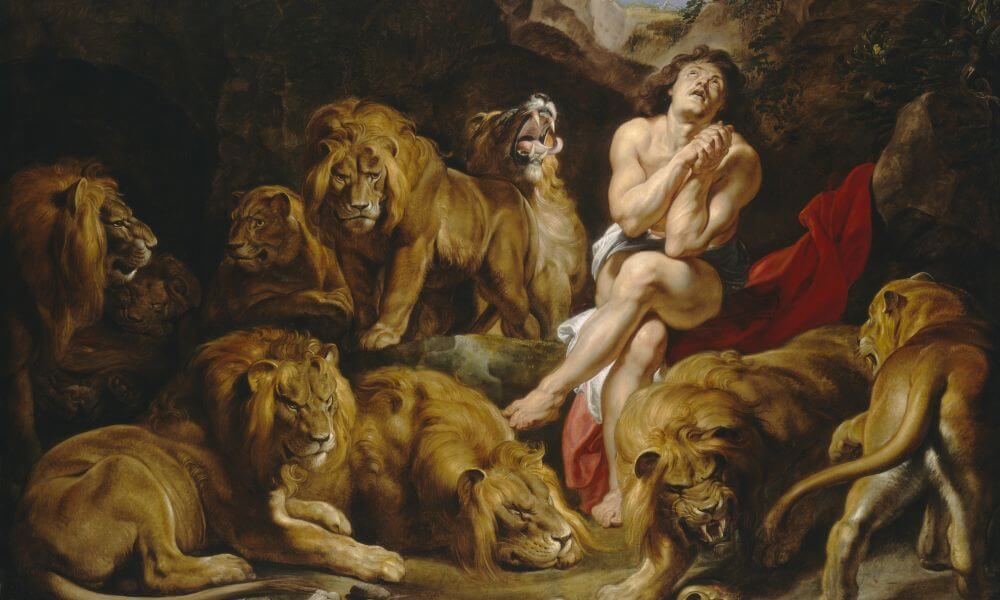Prophets in the Old Testament were God’s communicators. They were ambassadors that acted as an intermediary between God and the people being addressed—typically the nation of Israel. They are likened to that of Signal Officers—communicating God’s messages concerning missions, tasks, status updates, consequences, incentives, and rewards.
Poets of the Old Testament described God’s character in great detail, and they tell us a lot about how God interacts with His people. They were often written with heartfelt, passionate words to God with whom they sought to have a personal relationship.
A key thought to consider while reading through Challenge 3 of the Military Bible Challenge is that the words of the prophets and poets of old provide us with a template for understanding how God speaks to us today. The prophets recorded His words to His people and the poets showed us that we’re allowed to say anything to God (as demonstrated in the Psalms) and that God wants to hear from us.
Here are three examples from Challenge 3: Old Testament Prophets and Poets.
Bear True Faith: Job’s Confession, Repentance, and Restoration
Job is described as an upright and blameless man (Day 1) in the book of the Bible named after Him—so much so that God mentions him by name in the presence of the devil as a God-fearing man.
The devil—convinced that Job is only righteous and upright because of the many blessings God has bestowed upon him—asks God to allow him to first strip Job of all of his possessions and his very own children. God allowed the devil to proceed but forbade him to touch Job himself. Despite the overwhelmingly tragic loss, Job did not curse God and sin.
Still convinced that Job’s righteousness could be extinguished, the devil asks God to let him inflict great physical pain on Job himself. God allowed this also but instructed the devil to spare Job’s life. Understandably, Job is dealing with incredible heartbreaking loss and pain. His own wife goads him on to curse God and die. Yet Job holds steadfast to his integrity and does not sin.

Despite immense hardship and poor counsel from his friends, Job remained steadfast and faithful to God—he even repented for his own self-righteous behavior from which he questioned God’s punishment of him. Because of this, God blessed Job two-fold what he had before, including four sons and three daughters.
The book of Job offers a profound look at suffering, lament (our sorrow poured out to God and other people), and God’s deep knowledge of us and our suffering, and his even greater love for us, even when we can’t comprehend it.
On-the-Job Training: Solomon’s Proverb of Wisdom
Solomon was the son of King David, and he himself became the third king of Israel. During a dream in which God asked Solomon to petition any request, Solomon asks for wisdom to guide and lead his kingdom. This request greatly pleased the Lord, who gave Solomon not only the wisdom he sought, but also wealth, honor, and power like no other king before or after the reign of Solomon.
Solomon wrote a majority of the Book of Proverbs (proverbs are traditional sayings offering a truth or giving advice). Through his great wisdom (Day 7) given from God, Solomon wrote these great proverbs as instructions for his people—as well as the rest of us—on how to live an upright and righteous life.
Along with the path of wisdom Solomon set before us, he also sternly warned us not to walk in the way of sinners—a stumbling point for anyone who desired a life of righteousness before God.

Throughout his proverbs, Solomon presents a constant contrast: a life well-lived versus a life wasted. Live your life for God and seek knowledge and receive blessings. Despise and reject His instruction and live a fool’s life reaping what you’ve sown.
No Surrender: Daniel and the Lions’ Den
The account of Daniel the prophet is another wonderful example of how God’s mercy is extended amidst great hardship when we serve Him.
Carried into captivity to serve in the high courts of Babylon and later Persia, Daniel through his prophetic interpretation of dreams was awarded high ranking offices for both kingdoms that he served as an exile from Judah. In fact, King Darius had it in mind to have Daniel rule over his entire kingdom (Day 15), over all his other officials and satraps (governors).
As anyone might expect, this did not sit well with the king’s other officials—the thought of their king setting a captive exile from another country to rule over them and being subject to him was not appealing at all. They tried their best to contest his promotion by finding fault in him. As Daniel was a faithful and upright man of God, they could find no fault. They realized they would have to try to use his faithfulness and obedience to God to ensnare him.
They convinced King Darius to establish a law to cast any person caught praying to anyone other than the king himself to be cast into a lion’s den. With the document signed into law, the officials knew they had Daniel. Caught praying to God, Daniel was brought before the king and accused of his crimes. The king desperately tried to free Daniel, but alas, any signed document of the king by the law of the Persians could not be revoked. He had no choice but to send Daniel to the lion’s den.

As Daniel was locked in the den, Darius told Daniel he hoped his God whom he continually served would save him. The following day, the king—who understandably did not sleep the previous night—quickly went to the den to see what became of Daniel. Not only was he alive, but an angel of the Lord also came and shut the mouths of the lions, leaving Daniel completely unharmed! Daniel’s faith had saved him. And the men who had deceived the king and wrongfully accused Daniel were thrown into the den and cut to pieces by the lions.
Furthermore, King Darius decreed that his entire kingdom was to worship Daniel’s God. Daniel was saved because of his faith and God rightfully received all the glory.
The Prophets and Poets Laid the Ground Work for the Great Commander
Through their words in the Scriptures and their works during their lives, both the prophets and the poets of the Old Testament were paving the way for the Great Commander, Jesus Christ. God’s great love for His people is shown in the prophecies and poems that foretold the coming of Christ, who also came to save the people of this world.
Read through the other accounts in the third challenge and the rest of the Military Bible Challenge as we continue to learn about the Great Commander throughout the Bible. Together, we will see how the words of those who came before Jesus came to earth led to his arrival and the fulfillment of the Scriptures.
“These are my words that I spoke to you while I was still with you, that everything written about me in the Law of Moses and the Prophets and the Psalms must be fulfilled.”
Luke 24:44 (ESV)





